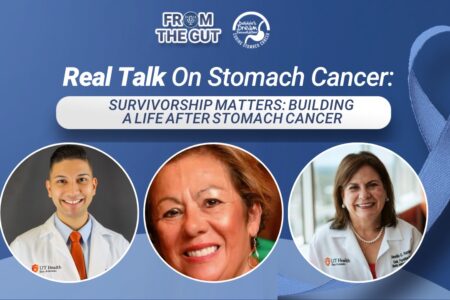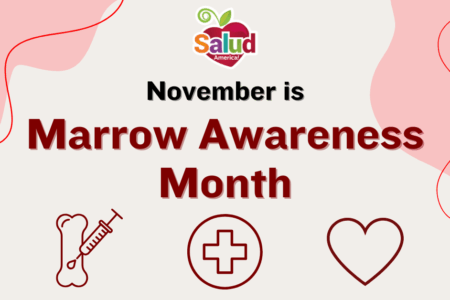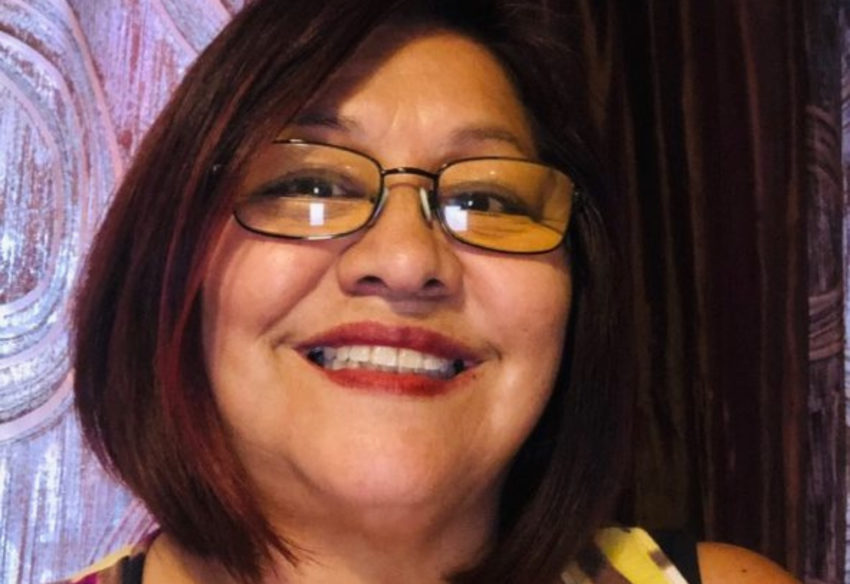
Share On Social!
Jeraldine Ortiz knows that breast cancer is tough for Latinas.
Breast cancer is the top cause of Latina death. This stems from cultural barriers to care, low screening rates, and low participation in clinical trials studies trying to find better treatments.
This is why Ortiz, when diagnosed with breast cancer, volunteered for a clinical trial.
Today, after more than 15 years as a cancer survivor, Ortiz said she strongly believes her participation in a clinical trial at UT Health San Antonio helped her get better treatment and better quality of life in her post-cancer journey.
“Clinical trials give the opportunity to better treatment for all populations,” Ortiz said. “We have a better future.”
Ortiz Chooses a Breast Cancer Clinical Trial
In 2006, Ortiz was diagnosed with breast cancer.
When visited the Mays Cancer Center at UT Health San Antonio MD Anderson to explore treatment options, her oncologist suggested she consider volunteering for a clinical trial.
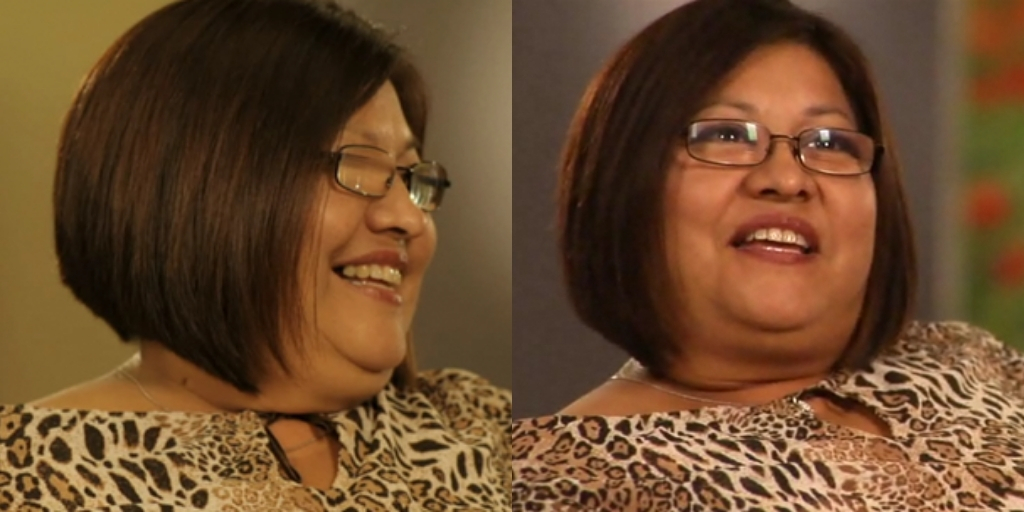 At first, Ortiz had her doubts. She thought a clinical trial might take too much time, or cause side effects.
At first, Ortiz had her doubts. She thought a clinical trial might take too much time, or cause side effects.
But her doctor and the research team volunteers solved her doubts.
They explained that clinical trials are studies to find more effective treatments, which can help current cancer patients, and/or achieve a better understanding of breast cancer to help future Latino cancer survivors.
“The volunteers and doctor explained it very well,” Ortiz said.
She ended up choosing to volunteer for a breast cancer clinical trial at Mays Cancer Center.
Ortiz knows many of her Latino peers don’t make this choice. Latinos are underrepresented in clinical research. Without adequate Latino representation in clinical trials, researchers cannot find the treatments and programs that work best for this population.
Ortiz believes more programs should educate Latinos about how clinical trials can help them. She said she always refers her friends to clinical trials.
“To create awareness more clinical trial workshops should be in Spanish, or bilingual workshops should be conducted,” she said. “Latinos mainly hesitate to attend due to lack of awareness and lack of trust to medical facilities.”
Ortiz’s Experience in a Breast Cancer Clinical Trial
Her doctor told Ortiz that the clinical trial will help. She said she had good faith in her doctor and his diagnosis.
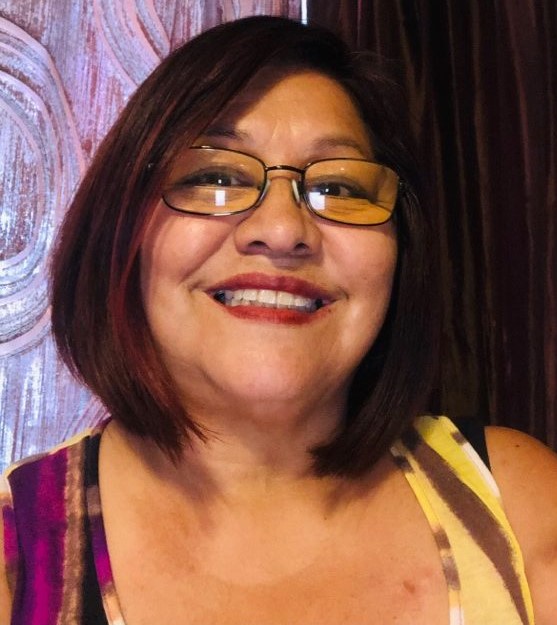 So she attended clinical trial appointments for several weeks.
So she attended clinical trial appointments for several weeks.
Her clinical trial experience was a positive one because the trial was local and didn’t require travel. She made regular visits during her chemo, and later they monitored her every year.
She said she’d choose a clinical trial again if given the choice.
“I believe that my doctor knows the best and the clinical trial helped me to get a new medication, which helped me to recover from cancer,” Ortiz said.
How Can You Get Involved in Cancer Clinical Trials?
You can be like Jeraldine Ortiz!
We need Latino volunteers for clinical trials because it helps researchers create treatments and solutions tailored for this population.
Dr. Amelie Ramirez, leader of Salud America! UT Health San Antonio is creating new ways to encourage Latinos to volunteer for cancer and Alzheimer’s clinical trials. This work is supported by a grant from Genentech, a member of the Roche Group.
“Latinos in clinical trials are not only helping themselves, but they are also building a future with better treatments that can help their families and communities in the future,” Ramirez said.
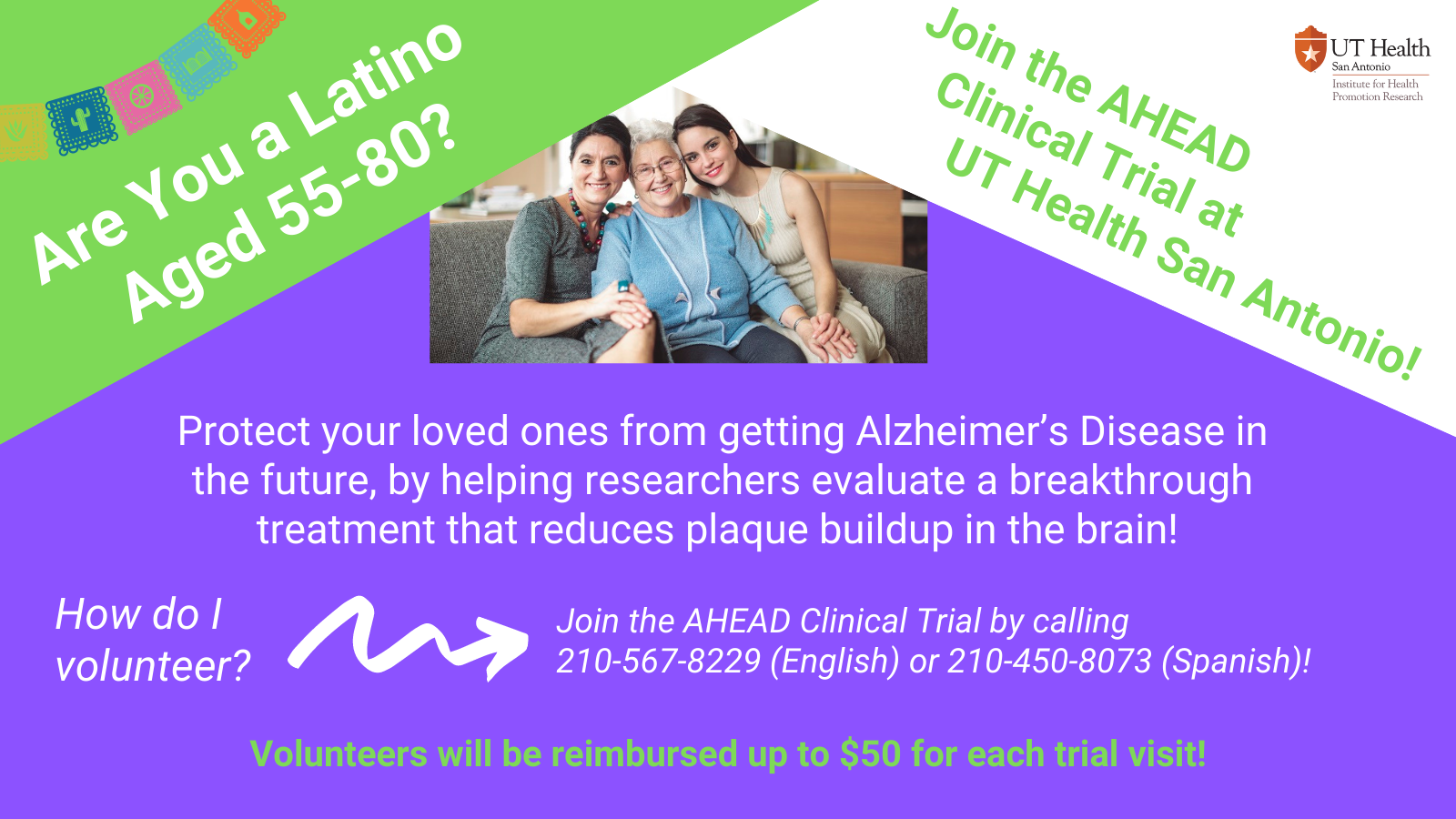 If you’re in San Antonio, volunteer for:
If you’re in San Antonio, volunteer for:
- A cancer clinical trial at the Mays Cancer Center at UT Health San Antonio
- An Alzheimer’s disease clinical trial at the Glenn Biggs Institute for Alzheimer’s and Neurodegenerative Diseases at UT Health San Antonio
- The AHEAD Trial. For people ages 55-80, this trial aims to protect against the onset of Alzheimer’s disease, giving you the chance to contribute to healthier futures for your mom, dad, and and other family members.
- The REACH Trial. For people ages 55-89 with a diagnosis of mild cognitive impairment or Alzheimer’s disease, this trial aims evaluate a new treatment that aims to slow the effects of the disease.
You can also use the National Cancer Institute’s online search tool or call 1-800-4-CANCER to find a cancer clinical trial in your area!
By The Numbers
142
Percent
Expected rise in Latino cancer cases in coming years
This success story was produced by Salud America! with support from the Robert Wood Johnson Foundation.
The stories are intended for educational and informative purposes. References to specific policymakers, individuals, schools, policies, or companies have been included solely to advance these purposes and do not constitute an endorsement, sponsorship, or recommendation. Stories are based on and told by real community members and are the opinions and views of the individuals whose stories are told. Organization and activities described were not supported by Salud America! or the Robert Wood Johnson Foundation and do not necessarily represent the views of Salud America! or the Robert Wood Johnson Foundation.


